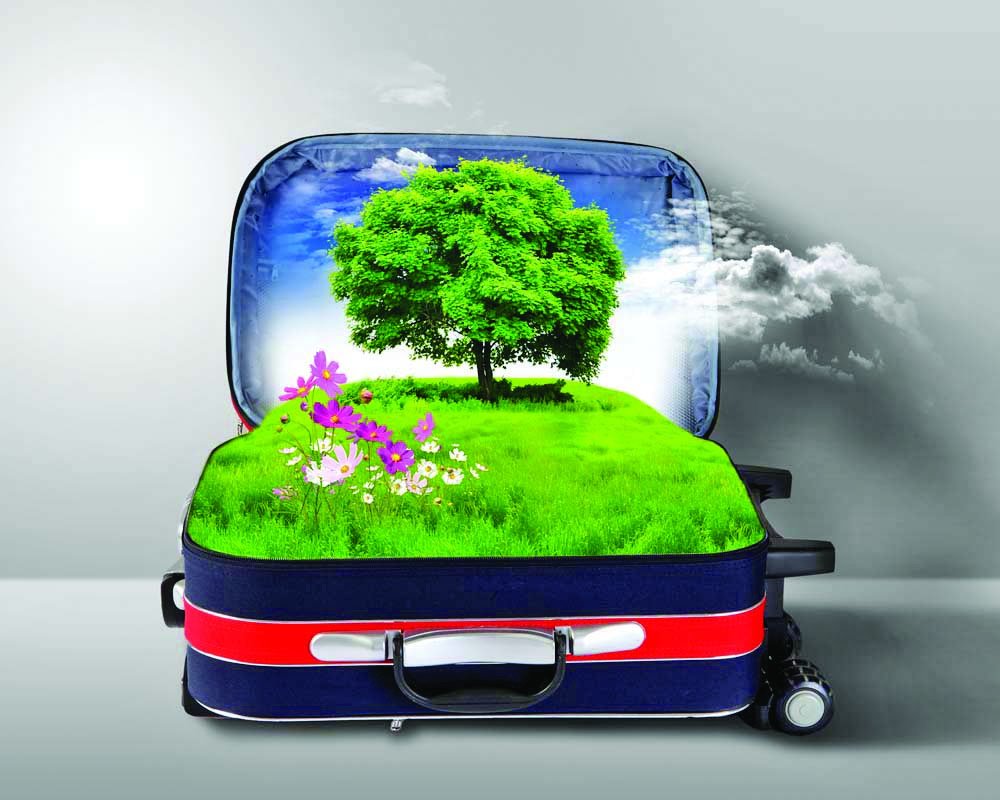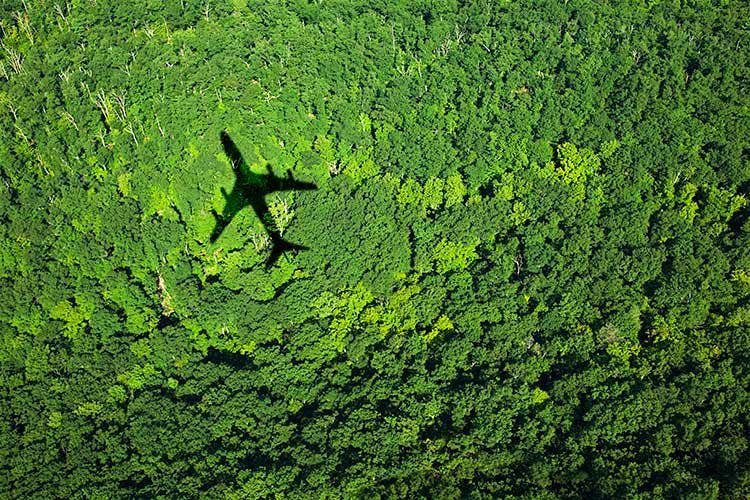Some tips for green trips

For many, holidays equals traveling. Individuals may prefer to travel to near or far destinations to gain experience, have fun and create some lasting moments in their lives.
Besides all its positive features, vacationing has the potential to harm the environment, especially if followed by bad habits. Here we will review some green traveling tips that can minimize its negative effects on the environment.
Bring reusable bottles and bags
We are living in a world which is facing with the increasing danger of plastics. We use plastics to make bags, bottles and many other products which are used only once. And then, they are left in the environment, threatening air, water, soil, plants, animals and humans.
Efforts for recycling plastics do exist but certainly not enough yet. What can you do the fight this issue when vacationing?
Simple. Use reusable bottles and bags. While you are shopping, bring a bag (preferably a cloth one) and refuse to accept plastic bags for every item you buy. Also, bring a glass or metal bottle with yourself.
If for any reason you are forced to use plastic bags and bottles, leave them in special bins, if any, which are dedicated to recyclable waste.
Eat and drink locally
This tip seems a little odd in the first glance but effective. Eating locally produced food leads to emitting less carbon to the atmosphere. But how?
The more travelers eat local foods, the less food will be brought from other regions, which in turn means cutting the gas emitted by trucks and other heavy-duty vehicles which bring the food.
And besides this environment-friendly notion, eating local foods supports the economy of the region being visited and provides the opportunity for you to experience new tastes and cultures.
Stay at an "eco" hotel
Try to opt for hotels which guarantee a lighter carbon footprint. Eco lodges and green hotels both emphasize elements such as environmental responsibility and minimizing negative impact.
The best ones offer renewable energy sources, recycling services, eco-friendly toiletries, energy efficient lighting, locally sourced food, organic linens and towels, non-toxic cleaning supplies, non-disposable dishes, water conservation methods and various other sustainability-focused initiatives.
The number of eco lodges and green hotels in Iran has had a significant growing trend during these few years, which is a positive both for our environment and for the country’s tourism industry.
And when staying in hotels, there are some points to remember. First, make sure that all the lights and TV are off when leaving the room, although many hotels are now using smart systems in this regard. Then, if you are not used to wash your towels every day at home, ask hotel’s employee to wash your towels less frequently since considerable amount of energy is being used for warming the water and washing process.
And just like home, try to limit your energy use in hotels by adjusting the air conditioning temperature few degrees up in the summers and few degrees down in winters.

Travel with cars rather than planes
According to New York Times, flying a 4,000 kilometers distance will generate 20 percent of the greenhouse gases that your car emits over an entire year. Estimates show that about 20,000 planes are in use around the world, serving three billion passengers annually. By 2040, more than 50,000 planes could be in service, and they are expected to fly more often.
So it’s better for the environment to travel less with planes. Cars and trains are a better choice in this regard.
It may take longer to travel with cars and trains but you have more opportunities to engage with the surrounding environment and add to your experiences. And if two or three other families are accompanying you, the road travel will be way more fun.
Pack lightly
Generally, the more weight planes, trains and cars have to carry, the more fuel they use, and consequently, the more greenhouse gases are emitted into the atmosphere, which in turn causes the planet’s temperature to rise.
According to U.S. Environmental Protection Agency (EPA), for every 45 kilograms taken out of the vehicle, 1-2 percent less fuel would be consumed. And this affects smaller vehicles more than larger ones.
At the heart of green travels lies the notion of protecting the natural and cultural environment of the places you visit which means conserving wildlife, plants and other resources, respecting local cultures and contributing positively to local communities.
Finally remember to take nothing but photographs, and leave nothing but footprints.
Wish you a great holiday.
MAH/MQ/MG
Leave a Comment